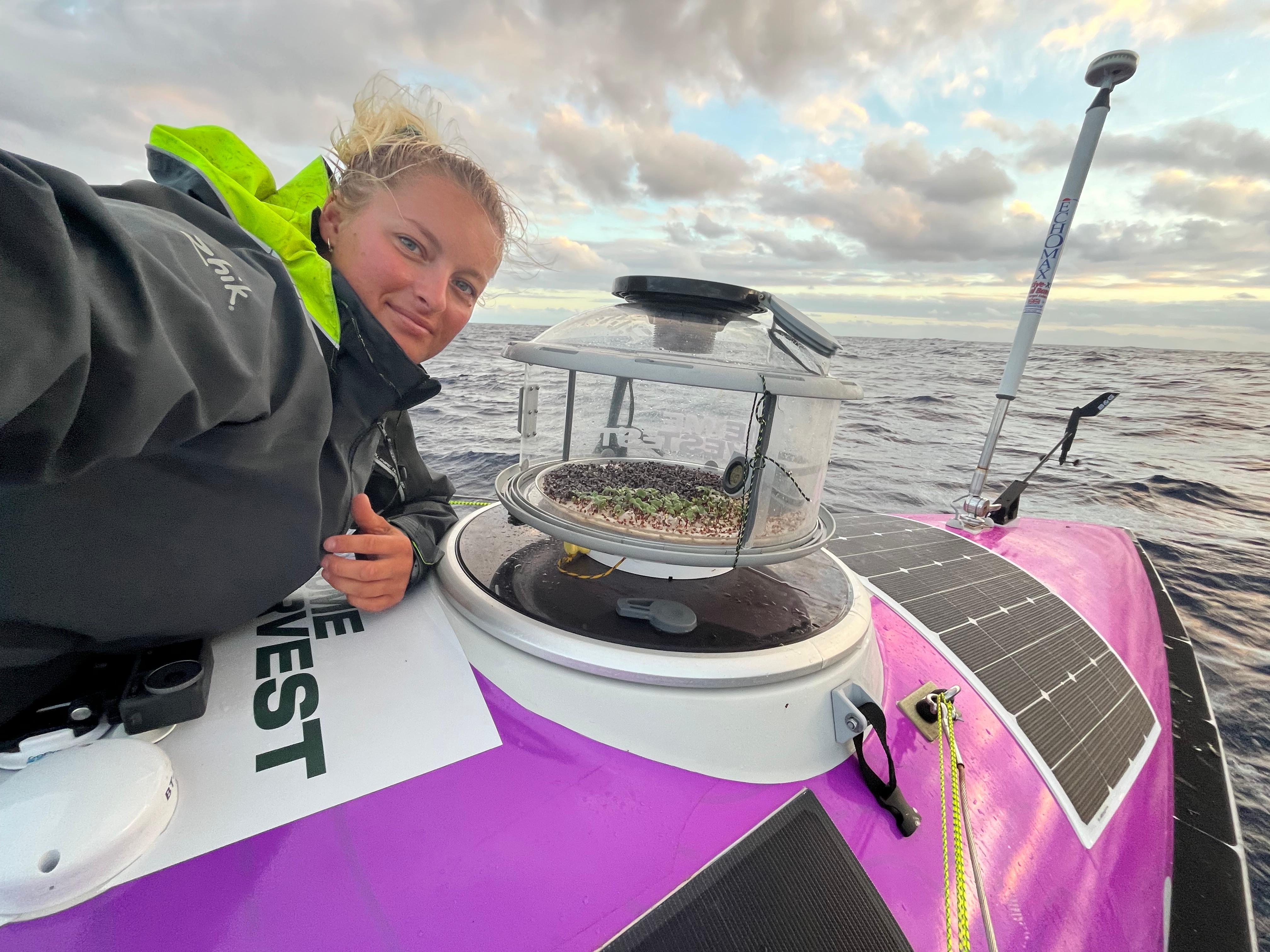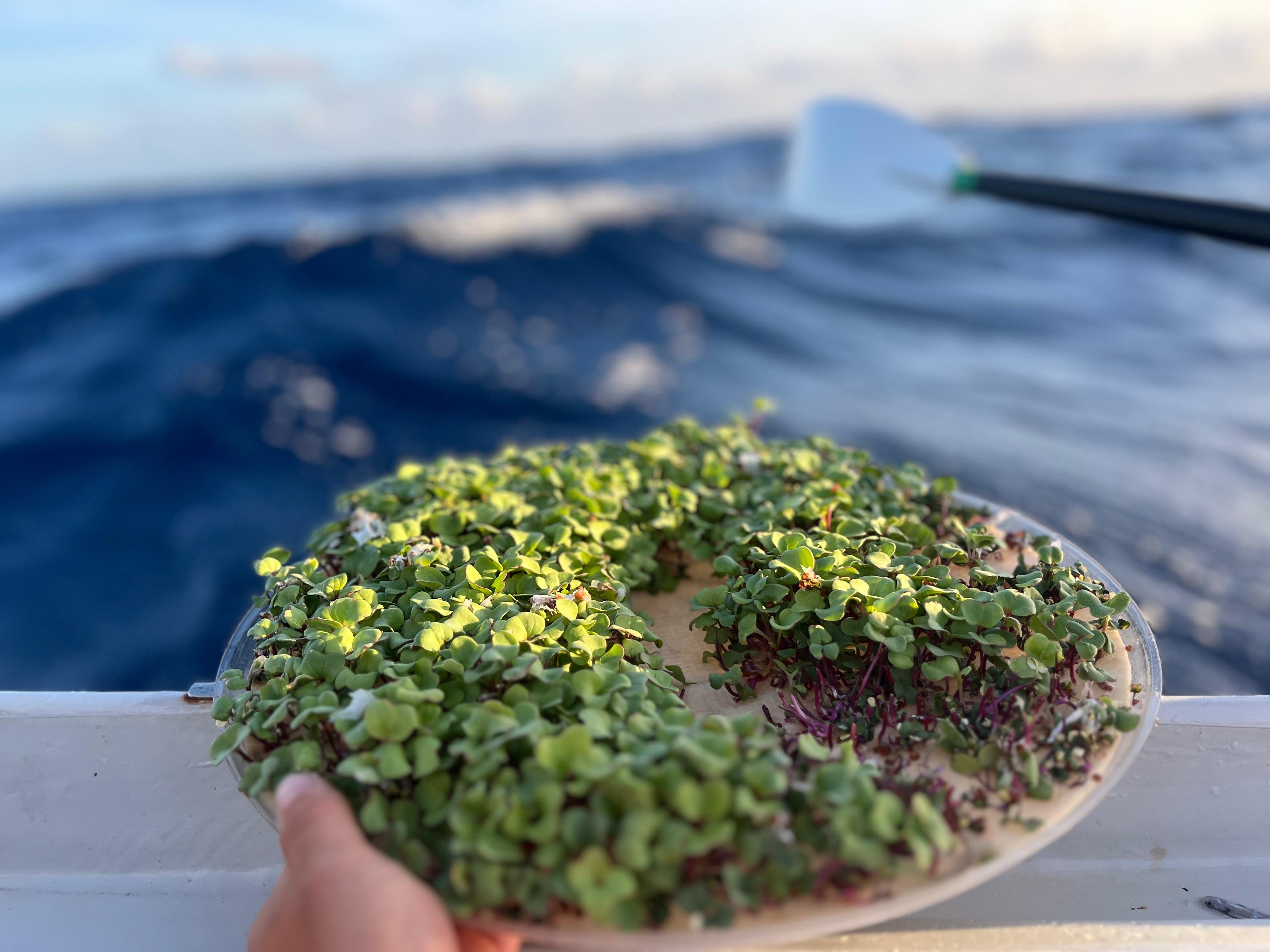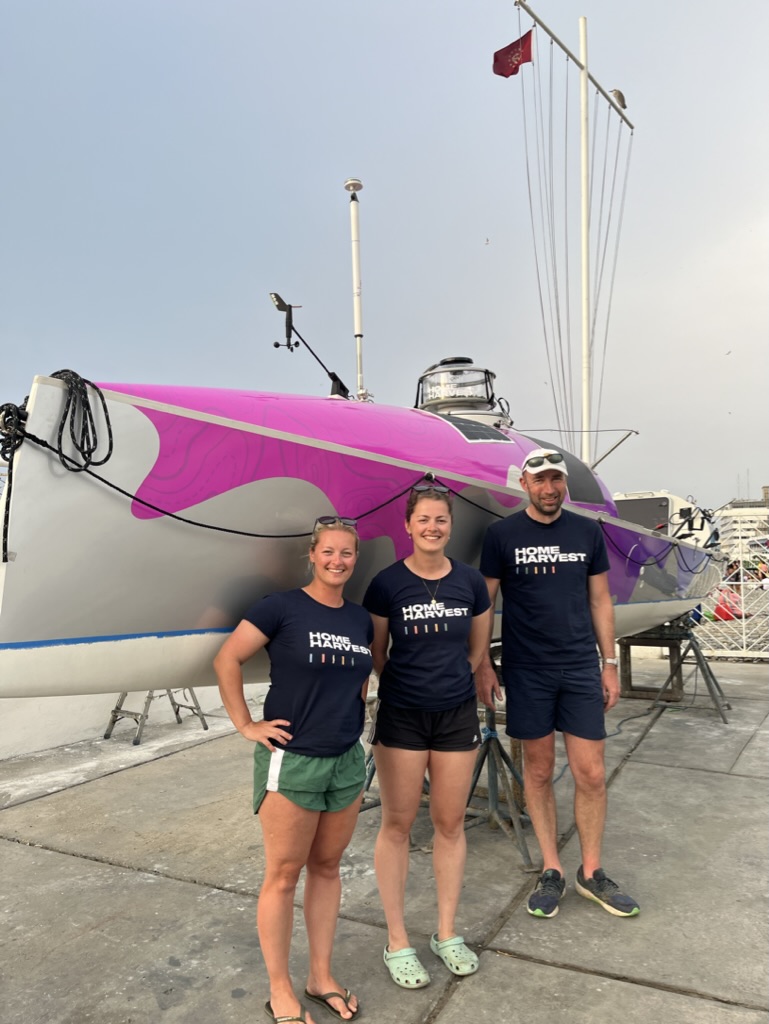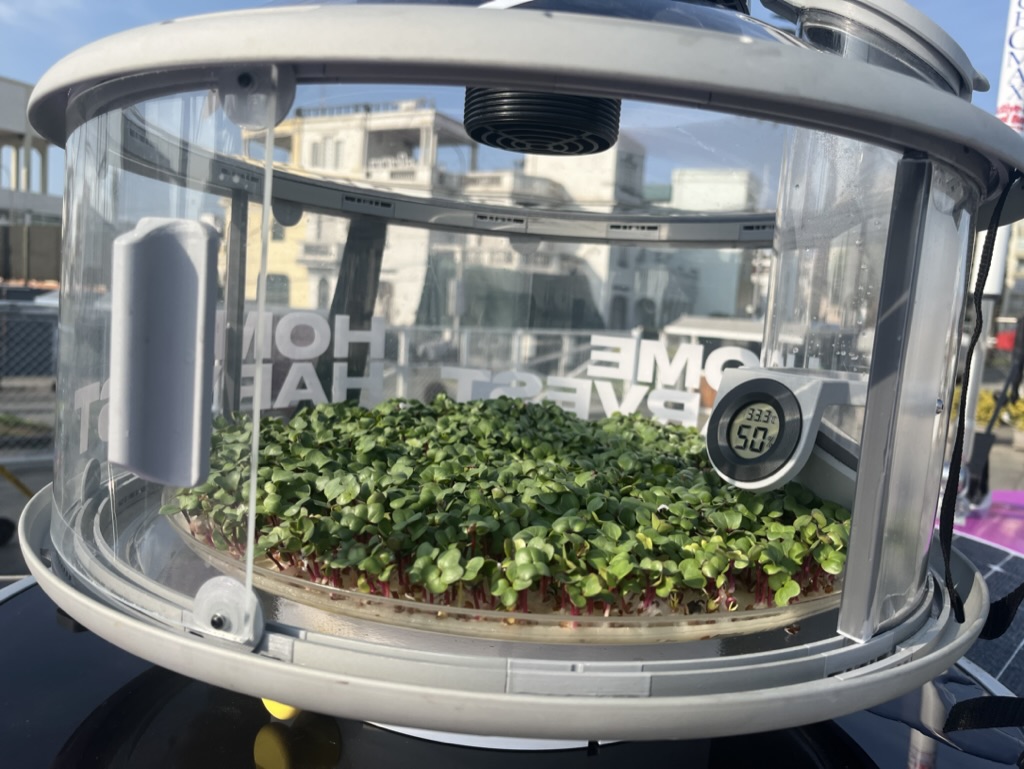How a floating salad farm fuelled two record-breaking rowers across the Pacific Ocean
Miriam Payne and Jess Rowe grew cabbages and radishes on their small boat while rowing more than 8000 miles from Peru to Australia.


When you are bobbing about in the middle of the Pacific Ocean, the last thing you might expect to find is a fresh bowl of salad. But that is what Miriam Payne and Jess Rowe had to eat on their record-breaking journey from Peru to Australia.
Thought to be the first crew of rowers to employ a ‘floating farm’, Miriam and Jess used new technology provided by one of their sponsors to grow their own salad in less than eight days while on their over 8000-mile journey.
The rowing team didn’t fancy being limited to rehydrated rations while consuming their daily 5000 calories, so spruced up their meals with radishes and cabbage while on their six-month unsupported journey. The Seas the Day Ocean Rowing Team crossed the finish line last month and raised more than £120,000 for The Outward Bound Trust, an educational charity that helps young people explore nature.
A post shared by Seas the Day (@seastheday2022)
A photo posted by on

Salad at sea.
The pair met while competing in the Atlantic rowing race, The World’s Toughest Row. After two years of intensive training, they quit their jobs and began the Pacific Ocean challenge in April.
‘I think after our Atlantic crossing we both — despite the difficult parts — absolutely loved it and loved the simplicity of life at sea,’ says Miriam. ‘You're away from the chaos of the world. It's just you and mother nature, and you couldn't be closer to the ocean unless you had gotten in it, really, so it's just an incredible way to experience life.’
The best part of the trip ‘was all the wildlife that we got to see’, says Jess. ‘The best day was the day we saw a sperm whale. It was about five metres away from the boat. Mims [Miriam] saw it as she was rowing when I was in the cabin. She thought she was hallucinating at first.’
The pair had a shift pattern of two hours on and two hours off, but as they reached the middle of the row they instead switched to rowing together all day long and keeping the two hours on ‘two hours off’ pattern at night. ‘We are still pretty sleepy,’ admits Miriam. ‘To be honest, we probably have still not caught up on sleep.’ They also had to repair their broken water pump while at sea, employ a pair of underwear for the job, and had issues with a broken rudder which marred their first attempt at the crossing.
Exquisite houses, the beauty of Nature, and how to get the most from your life, straight to your inbox.
Jess and Miriam may have broken five world records — they are currently waiting for a few to be confirmed. They are the first pair, the first women’s pair, and the youngest pair to row the Pacific non-stop and unsupported. They are also possibly the fastest pair and Miriam may be the youngest person to complete the crossing, aged 26.
The salad-growing device was provided by Home Harvest, who adapted their indoor growing technology to be solar powered and attached to the women’s boats. It withstood storms, freezing conditions and 10-metre waves. ‘I don’t think it’s ever been done before and I didn’t know if it was possible but we thought it would be a really cool experiment,’ says Miriam.

Jess Rowe and Miriam Payne with Andrew Johnson, the co-founder of Home Harvest.

‘At sea it just made so much difference, because there’s just no texture whatsoever to the dehydrated meals. It is just mush and it’s all the same colour. It was really nice having something fresh and green’ adds Jess. Miriam agrees: ‘Health-wise, in terms of getting the things that you can’t get from the freeze dried rations, it really helped.’
Andrew Johnson, the co-founder of Home Harvest and known by some as ‘The Salad King’, says: ‘The technology works by using higher seed density in the paper seed mats to achieve faster growth and the system creates the perfect growing environment with controlled temperature and light. You simply add water and can get fresh, leafy greens in a matter of days rather than months.’
The idea behind the product is to help users reduce the amount of imported salad leaves, which contributes to a lot of waste in the sector and the impact of pesticides on crops. The company's ‘indoor smart farms’ will be launching in the UK next year.
Lotte is Country Life's digital writer. Before joining in 2025, she was checking commas and writing news headlines for The Times and The Sunday Times as a sub-editor. She has written for The Times, New Statesman, The Fence and Spectator World. She pens Country Life Online's arts and culture interview series, Consuming Passions.
